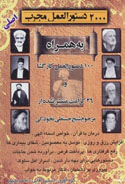Basic Need for Humane Conditioning of Natural Instincts And Desires
The need to refine and condition the raw natural instincts and desires of individuals in a benign manner is a basic one. Harmonious personal growth is conducive to wholesome interaction with fellowmen, which in turn leads to a salutary impact on the humanity at large.
An appropriate conditioning and training of an individual's natural potentialities brings about spiritual rewards, too. These include a spiritually balanced personal outlook and intellectual composure, necessary for any sound and beneficial endeavour. Psychosomatically balanced persons are emotionally stable and competent to achieve social harmony and peace.
On the other hand, any unduly inhibited or imbalanced growth of an individual personality is quite undesirable. So are any adverse external influences or pressures and strains of a negative kind. For, negatively conditioned people become susceptible to causing excesses, untold miseries and cruelties not only to themselves, but to others.
The traditional non-Islamic moralists regarded sex and love as if these were manifestations of an obnoxious evil to be shunned. In contrast, the modernistic societies tended to consider free love as not only desirable but respectable. No doubt, the free love concept began to receive every preferential treatment and encouragement for its worldwide growth.
With regard to Islamic morals, these can be properly understood with reference to the following points:
(a) Islamic morals and their compatibility with the objective requirements of natural growth of sexuality as part of inborn human instincts and potentialities;
(b) Suppression of human concupiscence;
(c) Modernistic sexual permissiveness as a major cause of sexual or sex-oriented aberrations or deviations of human behaviour, preventing harmonious growth of the natural instincts and potentialities of an individual;
(d) Democratic attitudes towards sexual behaviour;
(e) Sexual morality, as compared to general ethical conduct in the economic and political fields;
(f) Love and the forlorn condition in which it remains a longing; and
(g) Love and harmonious growth of human personality.
To begin with, the fact that natural human instincts should be nurtured, and not suppressed, is to be recognized. At the same time, it is necessary to conceptualize beyond any simplistic determination in terms of good and bad.
The Islamic approach takes into consideration the overall need for promoting a salubrious growth of human personality as an a priori requirement, based on deductive logic. The premises recognized in Islam include the factual position that every constituent part of the human body has a specific purpose or function. The biological purposes and functions are sustained by a person's will o nurture the same, even beyond the instinctive motivations. Accordingly, human volition, intellectual capabilities and similar other aspects of spiritual nature must be enhanced, too.
We could well imagine a situation where no traditional evolution of morality is allowed. This would mean that the inborn human potentialities are either harmoniously cultivated or prevented from such development. In any case, it stands to reason that human faculty to discern things and to comprehend the natural order of things, would have induced the necessary process of harmonization.
A hundred years ago, scholars and social scientists recognized the need for a psychosomatically balanced development of human personality. Societies of the time lacked a correct overall human perspective. There was a markedly deficient realization of the moral traditions. Negative tendencies affected all-round human development.
In fact, there has never been any doubt about promoting an all round growth of human personality. This is implicit in the very word training,, which has always been used to indicate human development.
Any correct and effective approach to training of human beings must aim at overcoming tendencies leading to disturbances of personality and morbid conditions of disorder and indiscipline, affecting the body, the mind and the spirit. A naturally harmonious and spiritually balanced human growth should include the training of the sex instinct in particular.
In the above context, Islam offers the most appropriate guidance. This position is intended to be clarified and established in the discussion that follows.
At the outset, we must stipulate that any preconceived or ill conceived notion concerning Islamic ethics must be avoided.
For instance, some people appear to harbour the notion that Islamic morality inhibits, rather than promotes, any free growth of human faculties. They wrongly believe that the Islamic explanations carry no intrinsic significance in the matter of refining and improving the natural human instincts.
Actually, the Holy Qur'an is replete with instances of emphasis on human refinement, such as when it asserts that a conscientiously righteous person is one who has been able to refine, discipline and purify his natural instincts and desires.
قَدْ أَفْلَحَ مَن زَكَّاهَا
“He will indeed be successful who purifies it” (Sura ash-Shams, 91: 9)
This quotation further implies that human conscience is liable to pollution. At the same time, it suggests that human beings can improve their individual conscientiousness by overcoming any polluted state affecting the same. Above all, the Holy Qur'an considers pollution-free conscience to be indispensable for attaining righteousness and happiness.
There can be no denying the intrinsic meaning and significance of the moral values taught by the Glorious Qur'an. The aforementioned teaching and its explanation pinpoints a conscientious approach to the problem of human refinement.
No school of thought or moral procedure rules out human susceptibility to pollution of the conscience or psyche and the consequent need to purifying and ameliorating the undesirable condition. Human psyche is vulnerable to prurient desires, moral aberrations and psychopathological disorders, just as the human body or organs are liable to disease.
An individual can feel within himself or herself the specific nature and extent of any physiological or psychological or spiritual ailments of his or her own. An individual does this to an extent far more real and complete with regard to himself or herself, than in respect of other persons, or for that matter, even in the case of any environmental pollution.
Thus, it is possible and necessary to ensure righteousness and rectitude on an individual basis, through a psychosomatically and spiritually harmonious personality development. The Holy Qur'an makes this point thoroughly clear.
There is another Qur'anic description of the raw, natural self of an untrained person: بالسوء اماره (ammaratu bissu’). According to this description, a person's untamed or inappropriately trained self is referred to as a commander of evil (thoughts and deeds). Does it mean that a non disciplined self can be wicked by nature, according to the Qur'an?
The reply to the abovementioned question cannot be positive. this is because, theoretically speaking, a human being, if born malignant, cannot be expected to be amenable to any training that seeks to metamorphosize him into becoming naturally benign. On the contrary, the very existence of naturally malignant beings deserves to be treated as undesirable, since they are potentially harmful. They ought to be prevented from growing and assuming menacing proportions. Their malignant impact would require to be curbed even by occasionally eliminating them!.
So, the correct answer is that there is no wickedness built into the very nature of a human being. Only, in particular situations, and in specific circumstances, an individual becomes vulnerable to wickedness and nurturing it, developing a malignant disposition in the process.
Any negative representation of man's basic nature as a source of evil and wickedness is not implied in the Qur’anic philosophy, as already indicated above.
Then, one may as well ask two more questions. Firstly, what can be the particular circumstances or specific causes, which lead human beings toward becoming wicked and corrupt? Secondly, how can the depraved and corrupt be rendered harmless and brought back to the righteous path of sanity and moderation?
Answers to the above questions require a comprehensive and positive understanding of the relevant Qur’anic teachings. For, they lie beyond any wrong and narrow minded interpretations, such as arising from any literally isolated or absolute or negative understanding of the Qur'anic description of human self as commander of evil. Actually, according to the Holy Qur'an. the self can be not only a commander of evil, but a conscientious reprove, (النفس اللوامه, an-nafsu-l-lawamah). Elsewhere, the Qur'an, refers to the self also as an abode of human peace and excellence (المطمئنه النفس , an-nafsul-mutma’innah).
The Qur’anic descriptions of self indicate that human nature can have different stages of growth and manifestation. At one stage, it can be prone to mischief and wickedness. Where anything undesirable is already perpetrated, it can also ruefully blame itself. Above all, it is capable of attaining the most desirable stage of human excellence and composure, beyond vulnerability to anything bad or wicked.
Islam does not presuppose any inherent wickedness of human nature. So, it is at variance with the speculative philosophies and systems of human training evolved in India, or those enunciated by some ancient cynical philosophers. Furthermore, it differs from the teachings of Manes, of ancient Persia. The Islamic approach is distinctive from that evolved in Christianity, as well. Islamic code of moral conduct does not evidently subscribe to any denial, or suppression, of human instincts, nor does it prescribe anything reminiscent of penal servitude in overcoming carnal desires.
The ancients might not have clearly realized that under specific circumstances or in certain situations or at some stage of personal disciplining, human nature could get awry and become vulnerable to wickedness or evil that is capable of assuming dangerous proportions. However, in modern times, when a scientifically investigated basis of human personality development has been arrived at, there can be no longer any doubt about the need to discipline one's own self.
The Holy Qur’an significantly reveals and pinpoints various aspects of human personality development. Identification of the negative tendencies of human nature is meant for emphasizing the positive aspects that can lead to an excellent flowering of human personality.
Even where the self has been described as commander of evil ” (الداعيه بالسوء, ad-daiatu bissu’i), the contextual inference is to the effect that human self is capable of inviting evil.
This distinction is important, in that human beings are made aware of their predominantly raw instinctiveness which, unless refined and trained, is naturally forceful enough to overwhelm any humanely cultivated qualities conducive to spiritual enhancement. This seems to be an aspect yet to be fully identified by modern psychologists.
Nevertheless, it is widely accepted today that emotional disorders can occasionally lead to mental illness. This can happen in some mysterious and arbitrary manner, in which the faculty of conscious perception is not involved. Consequently, the mind functions in an aberrant manner, so as to carry out the dictates or impulses of emotional origin.
The positive and negative factors in human personality development are further examined later on herein, in the context of modernistic sexual permissiveness. Meanwhile, an explanation of the meaning and connotation of suppressing carnality is desirable.
With regard to suppressing human concupiscence, Islam does not envisage it in any way. This is true for other instincts, too. Then, what is meant by suppression of carnal desire? Does it mean elimination of causes leading to it?
In the Islamic context, it signifies effective and moderate coping with the human concupiscence. This is emphasized also in many scholarly explanations of Islamic morality. Islam teaches human beings to overcome the natural predisposition of the bodily sensuality to rule over any sensibility of the mind. In other words, an individual must not be led by his natural instincts نفس آماره but manage the same in a wholesome manner. As mentioned earlier, Islam does not preach any ascetic suppression of concupiscence or natural desires.
To elaborate on the above point, it may be noted that, when a person is commanded by his instincts, he or she evidences a disorderly manifestation of human personality, a disruptive and overwhelming influence capable of affecting human conscience. Not allowing instincts to sway one's conscience necessarily implies pacifying and quenching the natural outpourings of carnal desire, or offsetting the palpability to temptation, emotional disorders or even sexual promiscuity.
Of course, eliminating temptation means taming the animal-like instincts. This is possible when temptation is avoided in a natural and harmonious manner. This necessitates overcoming tendencies leading to social evils and psychological ills. Thus, eliminating temptation does not require casting out the external forces, human or otherwise, which may be causing it.
On the contrary, what is required is to eliminate the internal causes and tendencies. This is necessary to avoid malignant development of the libido. Vulnerability to any undesirable external influences is also overcome in the process. A wholesome development of human instincts is a process requiring either a salutary compliance or a moral inhibition of their negative upsurge depending on their nature and content.
Incidentally, it is notable that the phrase: killing the carnal desire, does not occur in any specific teaching of Islam. Any reference to it is only by way of explaining the need for a salubrious growth of personality.
Towards satisfying natural instincts and desires, any one-sided approach entails shortcomings, which are not often removable subsequently Since the last century, sex-oriented psychological research achievements concentrated on proving that suppression of the natural instincts and desires was fraught with many adverse consequences to individuals. The microscopic investigations and findings proved to be valuable in themselves.
For one thing, traditional thinking to the effect that the more the baser instincts are suppressed the greater the scope for enhancing the higher faculties (such as the intellectual) has become valid. There is growing realization that extraordinary and far-reaching consequences, affecting individuals and their society both, underlie suppressed or unsatisfied instincts and desires, which are often hidden from the conscious mind.
The question of satisfying carnal instincts and spontaneous desires could well be left to one's own judgment. For, only human intellect can prevent any untoward instinctive development. One can purposefully manage one's own natural promptings and ensure that they are not negativated or harmed or frustrated in an unwholesome manner.
Many nervous and mental disorders affecting individuals, and even society as a whole, have been traced by psychologists and psychiatrists to personal feelings of deprivation, especially with regard to the sexual instinct. They have proved that emotional deprivations give rise to psychological complexes. The psychological afflictions can assume even dangerous proportions, resulting in sadism, morbid insolence, extreme jealousy, becoming a recluse or a cynic and similar others.
These findings concerning human instincts and desires represent some of the psychologically significant discoveries and successes achieved by mankind.
An increasingly popular awareness of and interest in the nature and content of the human senses may lead to further research and findings. The discoveries are likely to be of a kind that conforms to the needs of technological and industrial progress. These may be conducive to better identification and greater employment of the natural, especially inorganic, forces. However, psychological and spiritual aspects of problems may not receive popular attention. Thus, their awareness may be confined to learned men and the wise.
Psychosomatic integrity in human personality development has been emphasized since the beginning of recorded history. Islam, too, has significantly pinpointed its need. Traditional moralists, as well as behavioural scientists, have always tried to reflect the cumulative knowledge and wisdom evolved in the past in one way or the other. Nevertheless, the fact remains that the psychosomatic approach has been scientifically established only during the last one hundred years or so.
Now, let us see how best the principle of psychosomatic wellbeing can be practised. Evidently, it cannot be used as easily as penicillin. It is an abstraction that requires a certain ability to comprehend.
Moreover, it is suggestive of the intricacy and diversity of psychological and other problems, which often have been investigated in, a microscopic perspective. At the same time, obscuring considerations of morality and underrating personal character development have come to be the order of the day, which apparently suits many ease-loving and hard-pressed people of modern societies.
Worst still, the genuine need for promoting a wholesome fulfilment of natural instincts and desires, of a harmless kind, has been misinterpreted or misapplied in actual practice. Thus, an unrestrained gratification of human sexuality has come to be prescribed, ostensibly for avoiding their undesirable frustration. Consequently, the psychological complexes and tensions have tended to increase rather than decrease.
Statistics often indicate a virulent growth of psychological diseases, mental disorders, suicides, crimes of passion, anxiety, mental anguish, or restlessness, hopelessness, pessimism, jealousy, malice, or malevolence and similar other psychosomatic manifestations of unwholesome human personality development. The inhumane development of an ever-increasing number of individuals has been explained to be arising from the modernistic permissiveness with regard to natural instincts and desires, including uninhibited or unrestrained sex.
For centuries there has been widespread and insistent opposition to any permissiveness towards lust and sensuality. This was mainly in order to avoid the baneful effects of human sensuality or deviation, on individual morality, spirituality and activities, as well as on the peace and integrity of society. All this has been sought to be reversed in a sudden and arbitrary manner by the protagonists of a modernistic permissive society.
The reversal was sought, as if eschewing lust and subjecting oneself to chastity, rectitude, endurance, moral and social restrictions or limits, is capable of disturbing a person's spiritual wellbeing and his own society's peacefulness. Above all, the reversal was sought as if morality and avoidance of lust or sensuality are actually irrelevant to any benign personal conduct, or a positive development of human personality.
The volte face has come about as if there has always been a great and insistent demand for lifting the moral restraints or limits. The social change was sought as if it were really necessary to absolve people of their moral scruples, duties arid obligations and thus liberating them from assumed malevolence.
The reformist motivation seemed to be geared to some imaginary need to let people enjoy themselves to their hearts' content, irrespective of any moral compunction or conscious commitment to chastity and rectitude. All these are supposed to be conducive towards peacefully maintaining whatever social order has come to prevail, while purporting to free the people from psychological disorders!
Evidently, the seductive concept of freeplay of natural instincts and desires has been offered as a reformatory safeguard against moral and social constraints, as if these have a corrupting impact! Furthermore, the concept has readily appealed to many young and single persons, including a substantial number in our own country.
From what we have noticed, the supporters of a permissive kind of society have a peculiar way of thinking. They seem to believe that nothing is better for an individual than placing himself or herself at the disposal of the sweet dictates of the heart, while allowing the latter to be dominated even by lust.
At the same time, they apparently rationalize that the actions resulting from their way of thinking can be construed as both human and moralistic to the point of their being accepted as potential experts in sophisticated social behaviour. They apparently suggest that their thinking augurs them well, even if it represents a subject of ridicule to others. Furthermore, they profess to seek both self-gratification and service to their kind. They mean to ensure satiation of every bodily urge and to cope with any spiritual need, as well.
In other words, they seem to equate good or normal conduct with sensuality. Their imagination is not totally dissimilar to the metaphorical use of love by some mystics, in the manner of Sufis. They apparently sought communion with whatever images of female beauty and love they could visualize, even in Divine terms!!
Consequently, the modernistic freeplay with the natural instincts and desires failed to replace psychosomatic illnesses or neurotic disorders by any spiritual contentment. Human afflictions continued to spread, bringing one misfortune after another in an increasingly pernicious manner. No wonder, some promoters of uninhibited sexual development, such as Freud, were sensible enough to retract from their original claims, or subsequently modify or clarify the same.
They reiterated the position that there was no easy way out of the traditionally evolved social norms and constraints. They clarified to the effect that human sexual concupiscence is not a programmable quantity, or a self-contained input, for any complete or instant satisfaction. They also referred to the need for sublimating it, so as to channel human energies directly towards intellectual enhancement in solving problems of educational, scientific, cultural, socioeconomic and technological significance.
New morals of the kind advocated by Bertrand Russell, are supposed to be conducive to a positive development of human personality. At the same time, it is alleged that traditional morals inhibit human development. The fact that, in the wake of the new morals, human afflictions and distress have become aggravated disproves the abovementioned claims, so that they deserve to be subjected to the same allegations as they make against traditional morals.
Today, social scientists are microscopically endeavouring to cope with particular manifestations, as well as specific difficulties, found in their societies. In the present social conditions, young persons are consciously avoiding marriage. Pregnancy and upbringing of children are becoming somewhat abhorrent to many women, who seem to be less interested in even housekeeping.
Marriages are in evidence more in the traditional societies and conservative families than in the modern ones. On the other hand, neurotic conflicts in persons of both sexes are on the increase evidencing unusual psychosomatic and spiritual ailments.
Some among the social scientists opine that the traditional social values have been fundamentally overtaken and superseded by the manpower requirements of the modern industrial revolution. Actually, however, morals, traditional or otherwise, ought to remain the same in their intrinsic values and connotations. They are not affected by any changing patterns of human living from an agricultural setting to an industrial one.
Changes in any familiar patterns of human living and social interaction are only construed to be fundamental in some revolutionary intellectual way! The seemingly revolutionary thinking is attributable to some individuals with whom must lie the grave responsibility for any consequent misfortunes befalling humanity.
Even Bertrand Russell speaks of the pitfalls involved in speculative thinking, including his own. For instance, he favours an unrestrained gratification of the sexual instinct on one hand, and concedes the necessity of adhering to a time-tested system of its self-regulation, on the other. However, it is not intended, at this stage, to elaborate further on the pros and cons of modernistic thinking concerning human sexuality.
In reality, any appropriate compliance with the natural instincts, instead of suppressing them, does not mean the same thing as liberating sexuality by denouncing the age old moral restraints and constraints. The natural instincts and desires are not incompatible with chastity and virtue. In fact, they are adequately satisfied only within a chaste and virtuous regulatory framework, which avoids the evils of promiscuous behaviour, enforced celibacy or self-denial and the resultant emotional disturbances.
In other words, appropriate nurturing of human instincts means nothing different from overcoming lust and baser inclinations. The basic distinction between human beings and animals is that the former are capable of two kinds of desires: one is a genuinely natural urge and the other is a pseudo-desire.
Genuine desires conform to the naturally essential requirements, such as the desires for food, survival, self-protection, the sexual drive, the inclination for aggression or domination and similar others. Everyone of tire genuinely natural desires have a specific function, which they serve with a definite purpose. Aside from the fact that they are limited to their specific functions and purposes, all these are individually capable of forming a basis for a pseudo-desire, such as the well-known false appetite.
Most natural desires are amenable to complete satisfaction. Satisfying the others, including the sexual drive, involves psychological complications. For, the mind and the human spirit is at times capable of sustaining bodily desires beyond the natural limits of physiological satisfaction. Some intellectually sustained cravings never reach a saturation point!
Accordingly, it is quite misleading to suggest an uninhibited gratification of carnal desires, by prescribing freedom from moral restraints and curbs on the natural instincts. Those who prescribe it fail to distinguish between the qualities of human beings and animals. They ignore the fact that there can be no end to human desire or craving.
Human beings are prone to seize every opportunity towards self satisfaction. They unceasingly avail every occasion to advance their own interests. This is equally true in matters of acquiring wealth, economics, politics and government, as well as in seeking to dominate others or to intensify sexuality.
To suggest that relieving the sex urge is like attending to one's call of nature, such as urination or defecation, is quite misleading, too. Any question of evacuating from one's self his or her own moral scruples or conditions, in the process of obtaining instant sexual relief, does not arise. Conversely, safeguarding one's morality cannot mean the same as accumulating urine. For, unlike moral continence, retention of urine is bound to cause bodily comfort and disease.
For a better appreciation of the above point, let us assume that a person finds, along the avenues and streets he frequents, several clean, well-kept and even cost-free public urinals. Yet, one could not use them to his or her heart's content to an extent beyond what one's bladder permits! Accordingly, these nice urinals could not (or should not) unduly attract a person (to urinate).
Some modernistic people assume that all human inclinations, irrespective of whether or not these concern sex, aggression, domination or mammon worship, should be freely allowed to be satisfied. This is supposed to be capable of eliminating human deprivation, frustration or dissatisfaction, in the process of satisfying one's desires. Their reasoning is based on a false assumption. For, as pointed out earlier, complete gratification of all human desires is not possible.
Human capacity to seek gratification of the natural and acquired desires is not instinctively limited, as in the case of animals. Had this not been the case, there would have been no need for any human regulation of not only the sexual intercourse, but socioeconomic and political interactions, as well. Even moral restraints would have been unnecessary where natural constraints made it impossible for anyone to seek excessive satisfaction, .or indulge in excesses. The very limitation of natural capacity (to commit any excesses) would have served the purpose, as in the case of animals.
However, ethical limits and procedural regulations are necessary for promoting just practices and fair transactions in the socioeconomic and political fields.
Likewise, limitation on, and regulation of, sexual behaviour and the related activities, consistent with the needs of chastity and rectitude, should also be acceptable to everyone
مطالب مشابه با این موضوع:
وبگــــــــــردی طلبۀ پاسخگو
- فایل اعمال و رفتار های خلاف قانون جناب آقای حسن روحانی
- در کنج خانه طلبهها چه میگذرد؟
- سکوت چند ساله مسئولان حوزه در قبال حملات وحشیانه به طلاب!
- می گویند که مملکت مملکت آخوندهاست!!
- یک ماجرای تلخ که خانم ها با تأمل بیشتر بخونند
- جریان های تکفیری موجود در عراق و نحوه شکل گیری آنها
- سیر تکاملی تفکر سلفیه چگونه بوده است؟
- بداء در قرآن و حدیث چگونه مطرح شده است؟
- پیامبر (ص) با مخالفین خود چگونه بر خورد می کرد؟
- سبک زندگی حضرت زهرا سلام الله علیها
- ملاک کرامت و شرافت افراد، انسانیت است یا جنسیت؟
- رنگ و پوشش های رنگی در اسلام
- حجاب، زنان را افسرده میکند و مانع پیشرفت اجتماعی آنهاست!!!
- علوم لدنی معصومین
- مگر ولی فقیه معصوم است که ولایت مطلقه دارد؟
- اگر خدا ازعاقبت ما اطلاع دارد قیامت برای چیست؟
- آیا بجای نماز خوندن، پیانو یا سه تار بزنم؟
- چرا مراسم عزاداري امام حسين(ع) پيش از شهادت ايشان صورت ميگيرد؟
- چرا امام حسين(ع) در كربلا براي رفع تشنگي از خداوند طلب باران نكرد؟
دانــــــلود های مفیـــــــــــــــــــد
- دانلود پاورپوینت شناخت وهابیت و صهیونیسم و ارتباط با همدیگر
- دانلود دو پاورپوینت اجرای عید غدیر خم
- دانلود پاورپوینت احتجاج اميرمؤمنان (ع) به غدير
- پژوهشی در کلام و پیام مقام معظم رهبری پیرامون ماه رمضان
- خطبه شعبانیه و خطبه امیرالمومنین(علیه السلام) پیرامون روزه و ماه رمضان
- دانلود پاورپوینت و pdf تفاوت های زن و مرد
- دانلود جزوه ساعات سعد و نحس(زمان نوشتن دعا)
- تقویم مذهبی شمیم یار 96 مخصوص کامپیوتر
- دانلود نرم افزار «شیعه شناسی»
- دانلود پاورپوینت ساختار خانواده و مسایل آن
- دانلود کتاب دایره المعارف جنسی
- دانلود نکات جذاب دوران عقد
- دانلود کتاب درمان سرد مزاجی و بی میلی جنسی بانوان
- دانلود کتاب حسادت کودکان
- دانلود کتاب درمان خستگی وناتوانی جنسی
- دانلود پاور پوینت اسیب های ازدواج وخانواده
- دانلود پاورپوینت هشت گام برای تحقق رویا به واقعیت
- دانلود پاورپوینت تقویت اراده
- دانلود پاورپوینت موفقیت وروشهای رسیدن به ان
- دانلود پاورپوینت هنر رفتار با افراد دشوار
- دانلود پاورپوینت جملات جالب وجذاب روحیه بخش بزرگان
- دانلود پاورپوینت راههای مقابله ودرمان استرس
- دانلود پاورپوینت نیازهای اساسی کودکان
منبــــرهای مکــــــــــــــــــتوب
- منبر مکتوب: روز عرفه و فرصت ها
- منبر مکتوب: سبک زندگی امام باقر علیه السلام
- منبر مکتوب: سه نیاز مومن (امام جواد علیه السلام)
- سخنرانی سلسله ای و چند جلسه ای مناسبت ماه رمضان
- دانلود 30 جلسه سخنرانی ماه مبارک با موضوع تنها مسیر
- موضوعات پیشنهادی سخنرانی برای محرم
- فضائل حضرت قمر بنی هاشم علیه السلام
- برکات وجود ابا عبدالله علیه السلام بر عالم
- بررسی بُعد اخلاقی،عبادی و عرفانی عاشورا
- آخرين وصيت امام حسين عليه السلام
- اولین علت رویاروی در کربلا؛ دوری از یاد خدا
- هميشه حزن؟ شادي چرا نه؟ - شب دهم محرم
- چرا نفرين ؟ - شب نهم محرم
- نماز ظهر عاشورا - شب هشتم محرم
- فلسفه عزاداری - شب هفتم محرم
- دفاع از دین - شب ششم محرم
- فلسفه حضور خانواده سيد الشهداء - شب پنجم محرم
- علم امام علیه السلام به شهادت - شب چهارم محرم
- فقدان شرایط امر به معروف و نهی از منکر- شب سوم محرم
مناظرات طلبه پاسخگو
جدیدترین های زبان انگلیسی
- Islam and Its Social System
- Duties of Man Towards the People
- Islam Various Systems
- Attributes of The Real Follower of Imams in Their Teachings
- Who is a Real Shia Muslim?
- RIGHTS OF SCHOLARS
- Islam Attacks Slavery 1
- The Advantages of Religion 2
- The Clearest Reason for Free Will
- Sheikh Zakzaky to be released on bail
- Brief History of Religions
- Is It Necessary For Man To Follow A Religion?
- The Advantages of Religion 1
- Who Is Almighty Allah?
- What are the differences between Shia and Sunni Muslims؟
- The Rights Islam Offers to Women
- How I find that Islam does not Oppress Women?
- URGENT MEDICAL TREATMENT FOR SHEIKH ZAKZAKY
- The motto of this year’s book fair is “Reading Is Ability”.
- Fundamental principles of Islam
بیشترین دانلود ها
- دانلود صوتي تکنیک های نزدیکی زن و شوهر (108030)
- دانلود رایگان کتاب خواص سوره های قرآن (54684)
- دانلود پاورپوینت بسیار مفید مهارت های زندگی (37368)
- دانلود كتاب مسائل جنسي و زناشوئي در احاديث (33703)
- دانلود پاورپوینت و pdf تفاوت های زن و مرد (33677)
- دانلود کتاب دایره المعارف جنسی (31681)
- دانلود پاورپوینت های آموزش پیش از ازدواج (30440)
- دانلود بسیار مفید پاورپوینت آئین همسرداری (29791)
- دانلود پاورپوینت آموزشی بررسی رابطه دختر و پسر (29453)
- دانلود 110جلد کتاب بحارالانوار علامه مجلسی ره (29391)
- دانلود كتاب دختران خوب به آسمان می روند دختران بد به همه جا (28398)
- دانلود کتاب آموزش جنسی آقایان (28213)
- دانلود كتاب فرق و مذاهب كلامي استاد رباني گلپايگاني (28143)
- دانلود کتاب درمان سرد مزاجی و بی میلی جنسی بانوان (27902)
- دانلود نکات جذاب دوران عقد (27434)
- دانلود نرم افزار «شیعه شناسی» (25740)
- دانلود کتاب درمان خستگی وناتوانی جنسی (25012)
- دانلود پاورپوینت تقویت اراده (23506)
جدیدترین مطالب سایت
- پاسخ به شبهات ولایت (4634) بازدید
- پاسخ به شبهات ولایت (4422) بازدید
- اذان در جامعه اسلامی نماد چیست ؟ و چرا فقط سه بار در روز تکرار می شود ؟ (3866) بازدید
- باتوجه به عادل بودن خداوند چرا بعضی از انسانها را ناقص الخلقه آفریده است ؟ (3938) بازدید
- ویژگی خاص قرآن چیست که کسی نمی تواند مانند آن را بیاورد ؟ (4157) بازدید
- با توجه به ترک خود ارضایی عوارض آن هنوز در من هست چگونه آن را برطرف کنم ؟ (5561) بازدید
- آیا بدن اخروی مانند بدن مادی است ؟چهره ی واقعی انسان در قیامت چگونه است ؟ (4953) بازدید
- آیا ادعای ملاقات امام زمان (عج) از جانب برخی افراد صحت دارد ؟ (4445) بازدید
- چرا به اصول و قواعد دین اسلام توجه نمی شود و پذیرش آن از سوی پیروان ادیان دیگر سخت است ؟ (4811) بازدید
- فلسفه وجود لباس روحانیت در عصر حاضر چیست ؟ (3508) بازدید
- آیا وظیفه یک روحانی تنها راهنمایی مردم و فعالیت و تدریس در حوزه هاست ؟ (2922) بازدید
- آیا نظریه تناسخ از دیدگاه اسلام پذیرفته شده است ؟ (5171) بازدید
- آیا توصیف بهشت و جهنم در قرآن تمثیل هایی برای درک بهتر آن جهان است ؟ (4787) بازدید
- با توجه به اینکه اسلام کاملترین دین هست چرا ما نسبت به کشور های غیر مسلمان عقب مانده تر هستیم ؟ (6669) بازدید
- نقش امام و رهبر در جامعه اسلامی چیست ؟ و اگر نباشد چه اتفاقی می افتد ؟ (4495) بازدید
پربازدیدترین های سایت
- زنی هستم که میخواهم به شوهرم خیانت کنم!!! (605225)
- آيا زن شوهر دار بخاطر رفع نیاز جنسی اش ميتواند صیغه شود؟ (500922)
- دوست دخترم حامله شده چکار کنم؟ (398550)
- میل جنسی زیادی دارم و به شدت داره منو عذاب می ده (340445)
- دیدن فیلم های مبتذل زن و شوهر برای تحریک شدن جنسی (217771)
- چگونه همسرمان را آماده آميزش جنسي كنم؟+18 (213094)
- حکم شرعی نزدیکی از پشت! (207987)
- خانم هایی که می خواهند طلبه شوند بخوانند!!! (205412)
- زنم رابطه جنسی برقرار نمیکند!!! (199629)
- از تجربه های تلخ و تکان دهنده دختران بخوانید شاید... (172372)
- گناه با محارم خود داشتم! (146258)
- رابطه جنسی دهانی حكم چيست؟ (130686)
- محرمات و مکروهات و مستحبات حائض+حکم ورد به امکان مقدسه (129466)
- به رابطه خانمم با خواهر زاده اش مشکوکم؟ (123081)
- سفارش اسلام در مورد آمیزش صحیح چیست؟ (99026)
- نام كتاب حضرت نوح و حضرت ابراهیم؟ (97002)
- با زنان چشم سبز ازدواج نکنیم؟ (94692)


















